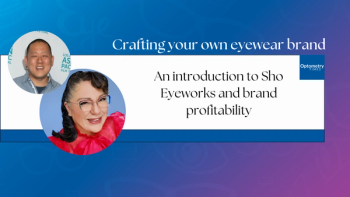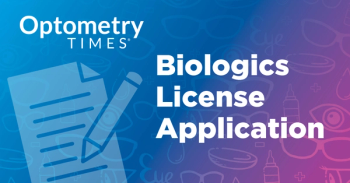
6 tips to navigating the insurance game
One of the most frustrating and seemingly futile battles of starting your practice from scratch is getting the medical insurance game figured out.
The views expressed here belong to the author. They do not necessarily represent the views of Optometry Times or UBM Medica.
One of the most frustrating and seemingly futile battles of starting your practice from scratch is getting the medical insurance game figured out.
The problem with this game (and I do call it a game very intentionally) is that the rules vary from company to company.
Previously from Dr. Denton:
As if this alone weren’t challenging enough, the rules seem to constantly change. It is possible to get one answer from a representative-only to have the next representative you reach tell you the original answer was completely wrong.
You might think to yourself as I did, “Ask a colleague how he did it.” The problem is that the process is so complicated, plus many colleagues have been in-network providers so long that they couldn’t remember the details.
Because of regional differences and the ever-changing rules, it is nearly impossible for me to write you a comprehensive “Here’s how you make insurance credentialing and contracting easier” blog post.
But what I can do, after a year of relentlessly trying to figure it out and get paid for my work, is give you loose guidance and tips/tricks that would have been helpful for me from the beginning.
Up next:
1. Do your research
There are some companies that are universally a good idea to join. There are other, specific regional carriers that you may want to join.
First, you must do your research. Start by knowing your vision for your practice and your patient demographic. Study your community. Who are the major employers? Who are the major insurers?
There is no shortcut to knowing this. Your practice is your priority. Your community is your priority. You must study your own community to know how to serve it.
Up next:
2. Meticulousness is rewarded
When attempting to get on insurance panels, get ready to amass an arsenal of evidence. It is extremely helpful to take meticulous notes about every call made, online form submitted, email sent, and snail mail delivered.
Be prepared for a whole lot of “We don’t see your application,” or “We never received a package from you,” or “Please allow 60 days for processing.”
The only way to properly combat the disorganization of these companies is to be overly attentive and organized yourself. When I sent 80 pages worth of application and supporting documents to one company, I made sure to require a signature upon delivery.
Related:
One week after it was delivered with accompanying signature, I called to confirm delivery. I was told, “We have received nothing from you,” to which I replied, “Maybe you should talk to Darlene who signed for it at 11:23 a.m. last Thursday.”
They found my application magically.
Typically you will be told to wait 30, 60, 90, or even 120 days for processing. I calculate that time period and put an alert on my schedule to call on Day 31, 61, 91, or 121.
When I am told there is no record of my calling, emailing, or submitting forms, I readily provide reference numbers. It makes a huge difference.
Up next:
3. Centralize what you can
Council for Affordable Quality Healthcare (CAQH) is a wonderful tool that centralizes credentialing-related documents and in some cases makes the insurance credentialing/recredentialing process easier.
Vision plans as well as medical insurances use this tool. While it is initially somewhat cumbersome and time intensive to set up, it does pay dividends in making the recredentialing process easier.
I have an alert set to check my documents every month because from time to time you must “re-attest.”
Up next:
4. “No” means “try harder”
We have a saying in my office that my team is starting to adopt. “No” doesn’t mean “no” when it comes from insurance companies. It means “try harder.” Find a way.
Let me talk to someone else. Let me call back. I’ll call my state society or my national society for assistance. I’ll amass a folder of patient letters three inches thick to send you about why I need to be in-network so I can provide care to my patients.
Related:
But no? I don’t hear that word anymore. Yes, I’m crazy. Yes, my team thinks so, too.
But when you say “no” or you “can’t” to me, I say, “Watch me.”
Up next:
5. Get creative
When you are denied for a panel, consider other ways to prove why you should be included. Know your practice and what you offer to your patients that is distinctly different.
Related:
Are you the only provider in the area? Do you speak a second language? Do you have patients who have transferred with you from another office who wish to have continuity of care with you? Those patients may be willing to write a letter or call the insurance company themselves. Are you getting frequent calls from potential patients on these plans?
All of the above are potential ways to show a company why you need to be on its panel.
Up next:
6. Stay involved
I know exactly how insurance is billed at my office. Is that the best use of my time?
This is how we get paid, so I think staying involved is a good idea right now when our patient load is smaller.
Staying involved is also effective in making sure that as a practice we set things up correctly. I have watched countless YouTube videos about CMS 1500 forms and how to fill them out, how to read explanation of payment forms, and clearinghouse-specific training.
Related:
I know how our practice management system interfaces with our clearinghouse, and often I send the claims myself. In the setup period, it is critical to be attuned to the details.
Even if your practice is well-established, it is important to spot check claims and ensure that they are completed correctly not only to ensure your revenue stream is what it should be but also to guard against potential audit concerns.
Related:
In addition, staying involved helps me to know which commercial carriers are excluding us from specific panels without telling us. (Sometimes PPO or HMO panels require a primary-care referral first or require your participation on that specific sub-panel).
There is no shortcut to setting up your office for the first time on insurance panels. The process is time consuming and at times maddening. Some of the companies we are now regularly taking payments from took six to eight months to credential us.
This is a marathon, not a sprint. Don’t take no for an answer. Fight the good fight.
Newsletter
Want more insights like this? Subscribe to Optometry Times and get clinical pearls and practice tips delivered straight to your inbox.













































